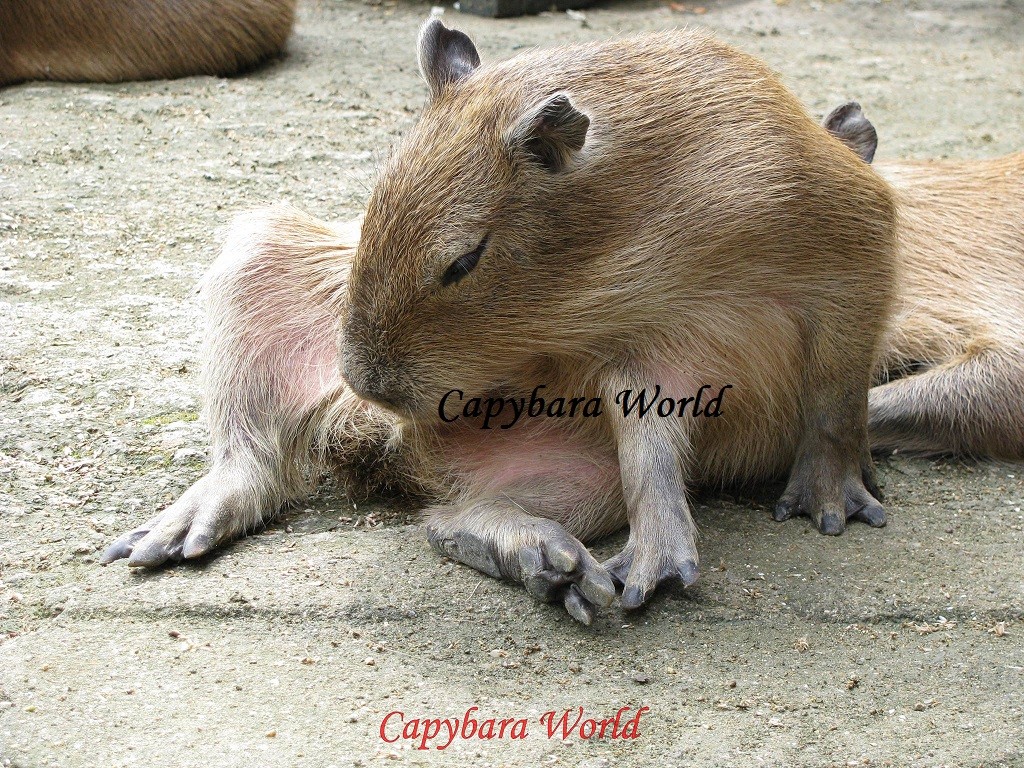Capybaras, the world’s largest rodents, have captured the hearts of many with their gentle nature and social personalities. Their increasingly viral presence online might leave you wondering: “can you have a pet capybara?” While the idea of owning these fascinating creatures is appealing, responsible pet ownership requires careful consideration of numerous factors. This article will delve into what it truly takes to keep a capybara as a pet, covering legalities, care requirements, and the realities of living with these unique animals.
Understanding Capybaras and Pet Ownership
Capybaras are social, semi-aquatic mammals native to South America. In their natural habitat, they live in groups and spend a significant amount of time in and around water. Their docile demeanor and herbivorous diet contribute to their charm. However, these very traits also dictate the specific needs they have in captivity.
Keeping a capybara is vastly different from owning a cat or dog. They are exotic animals with complex needs that must be met to ensure their well-being. Before even considering bringing a capybara into your home, it’s crucial to understand the commitment involved.
Legality: Can You Legally Own a Capybara?
The first and most critical question is the legality of owning a capybara where you live. Laws regarding exotic pets vary significantly by region, and capybaras are often classified as exotic or wild animals.
United States Laws
In the United States, there’s no federal law prohibiting capybara ownership, meaning regulations are determined at the state and local levels. Some states are more permissive than others. States generally considered to allow capybaras as pets, often with permits or licenses, include:
- Arizona
- Arkansas
- Texas
- Florida
- Indiana
- Nevada
- Washington
- North Carolina
- Tennessee
- Parts of New York State
However, this is not an exhaustive list, and regulations can change. Even within these states, counties, cities, and even homeowner associations may have their own ordinances against exotic pets. It’s essential to contact your local Wildlife Fish and Game department or equivalent authority to ascertain the specific laws in your area. They will provide accurate information on permits, licenses, and any restrictions that may apply. Furthermore, be prepared for property inspections to ensure suitable habitat and welfare conditions are met for a capybara.
This image depicts a young capybara, Io, approximately five months old and the offspring of Donguri, engaging in cecotrophy. This natural behavior involves consuming specialized fecal pellets to further digest and absorb nutrients.
International Laws
In Europe and other parts of the world, pet ownership laws can be even stricter. Many European countries have stringent animal welfare laws and may prohibit the keeping of wild animals as pets altogether. While some countries like France and Poland might allow capybaras under very specific and demanding conditions, others, such as Italy, strictly forbid it. Always research local and national regulations thoroughly before considering a capybara, especially outside of the United States.
Reliable resources for checking exotic pet ownership laws include organizations like Born Free USA and websites dedicated to animal law information. However, remember that online information should be verified with local authorities for accuracy.
Capybara Care: Meeting Their Unique Needs
Assuming legality is not an obstacle, understanding the extensive care requirements of capybaras is paramount. These are not low-maintenance pets and demand significant resources and commitment.
Social Needs and Companionship
Capybaras are highly social animals and thrive in groups. A solitary capybara can experience significant stress and loneliness. Therefore, if you consider getting capybaras, it’s strongly advised to get at least two to provide companionship for each other. Bonding with humans is possible, but it should not replace the need for capybara-specific social interaction. As highlighted in observations, capybaras bonded solely to humans can suffer severe separation anxiety when their human companions are absent.
Habitat and Environment
Mimicking their natural habitat is crucial for capybara welfare. This includes:
- Space: Capybaras need ample space to roam and graze. A large yard is essential, and the space must be securely fenced to prevent escapes and protect them from predators.
- Water Access: Being semi-aquatic, constant access to water is non-negotiable. A pool, pond, or large water feature must be provided for swimming, bathing, and thermoregulation. The pool must be of adequate size for capybaras to fully submerge and move around comfortably. Chlorinated pools designed for humans are unsuitable and potentially dangerous for capybaras. Research safe pool treatments to maintain hygiene without harming them.
Diet and Nutrition
Capybaras are herbivores with a diet primarily consisting of grasses, aquatic plants, and hay. A proper diet is vital for their health and longevity. Supplementation with fresh vegetables and fruits can be beneficial, but their diet should mainly consist of forage. Avoid feeding them dog or cat food, as these are not appropriate for their digestive system. Access to fresh, clean water should always be available, separate from their pool water.
Health and Veterinary Care
Exotic animal vets with experience in rodent or wildlife care are necessary for capybaras. Routine check-ups, preventative care, and prompt treatment of illnesses are crucial. Be prepared for potential veterinary costs, which can be higher for exotic animals.
This photograph showcases Aoba, a capybara known for his magnificent appearance, captured on September 10, 2019. The image highlights the physical grandeur and gentle demeanor characteristic of capybaras.
Ethical Considerations and Responsible Ownership
Beyond legalities and care, ethical considerations are paramount when thinking about owning a capybara.
Commitment and Responsibility
Capybaras can live for 8-10 years in captivity, sometimes longer. This is a long-term commitment that requires consistent care, attention, and financial resources. Consider your lifestyle, living situation, and long-term plans to ensure you can provide a stable and enriching environment for a capybara for its entire life.
Welfare and Well-being
Capybaras are sensitive and intelligent animals. Their emotional needs must be met just as much as their physical needs. Providing a stimulating environment, social interaction (with their own kind), and minimizing stress are crucial for their well-being. Potential owners must be prepared to dedicate significant time and effort to understanding capybara behavior and ensuring their emotional and psychological health.
Sourcing and Breeders
If you are legally permitted and fully prepared to own a capybara, sourcing them from reputable breeders is essential. Responsible breeders prioritize animal welfare, genetic diversity, and proper socialization. Avoid supporting breeders who do not adhere to ethical practices. Accreditation from organizations like the Zoological Association of America can be an indicator of responsible breeding.
Conclusion: Is a Pet Capybara Right for You?
The question “can you have a pet capybara?” is not a simple yes or no. While legally possible in certain areas and undeniably charming, owning a capybara is a significant undertaking. It demands substantial resources, specialized knowledge, and a long-term commitment to providing for their complex needs.
Before making any decisions, thorough research is crucial. Visit reputable breeders, speak to capybara owners (where possible), and consult with exotic animal veterinarians. Consider the ethical implications and ensure you are genuinely prepared to offer a capybara a life that mirrors, as much as possible, their natural, thriving existence. Only then can you responsibly answer if a pet capybara is the right choice for you.
Further Reading and Resources:
- Pet Capybara FAQs. The Questions People Always Ask
- A Pet Capybara Should I Have One?
- What Should I Feed My Pet Capybara? Capybara Diet
- Summary of State Laws Relating to Private Possession of Exotic Animals
- Map – Private Exotic Pet Ownership Laws
- Capybara World Blog
- How to Make Your Pool Safe For a Capybara. Do Not Use Chlorine
- Pet Capybara Pool Size. What Size Pool Does My Capybara Need?
- Critical Care Formulas for Capybaras. Capybara Health Care. These Formulas Could Save the Life of Your Capybara.
- Capybaras, Beware of Toxic Plants, Chemicals and Poisonous Animals like Scorpions and Snakes. Humans, Remove These from Your Land, Garden and Yard. カピバラに対して毒性である植物。有毒化学物質。危険な動物 – ヘビ、クモ、サソリ
- Protect Your Capybaras and Guinea Pigs from Power Cords and Electric Cables

